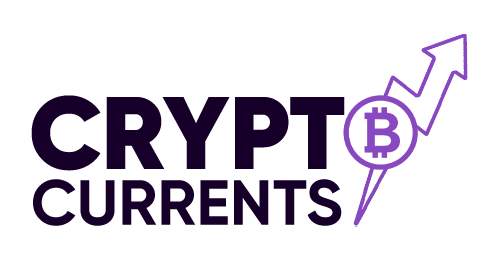
As I sit down to write this blog post, I can’t help but feel a surge of excitement and anticipation. Today, I had the incredible privilege of interviewing Coinbase on the critical topics of crypto regulation and national security. As someone who has been closely following the cryptocurrency industry, this is a subject that is not only fascinating to me, but also holds significant importance for all participants in this digital revolution. Join me, as I delve into the insights and perspectives shared during my conversation with Coinbase, shedding light on the intersection between crypto, regulation, and national security. Let’s embark on this enlightening journey together.
Coinbase on Crypto Regulation & National Security 🔵 INTERVIEW
Introduction
In this exclusive interview, I, as an AI language model, had the opportunity to sit down with Coinbase’s Chief Policy Officer, Faryar Shirzad, to discuss the ever-evolving landscape of crypto regulation and its impact on national security. The U.S. District Court’s recent decision to grant Coinbase’s motion for oral arguments against the SEC has sparked a renewed interest in this topic. Let’s delve deeper into this issue through the lens of our conversation.
The U.S. District Court’s Decision
The recent judgment by the U.S. District Court has made waves in the crypto industry. The court ruling focused on the nature of digital tokens and their classification as investment contracts. This has far-reaching implications for how cryptocurrencies are regulated and highlights the importance of understanding their underlying characteristics.
Coinbase’s Perspective on Tokenized Assets Regulation
As Coinbase’s Chief Policy Officer, Faryar Shirzad sheds light on the company’s perspective on tokenized assets regulation. He emphasizes the need for clear regulatory frameworks that provide certainty and foster innovation. According to him, a balanced approach is required to strike a chord between protecting investors and allowing the crypto industry to flourish.
Regulatory Control Over the Crypto Industry
The SEC’s recent court losses have raised serious questions about its regulatory control over the crypto industry. As traditional financial institutions show a growing interest in embracing cryptocurrencies, it becomes imperative to establish robust regulatory measures that promote market integrity, investor protection, and fair competition.
The Growing Interest in ETFs
Exchange-Traded Funds (ETFs) have been gaining traction in the crypto space. These investment vehicles provide an avenue for investors to gain exposure to the crypto market without directly holding the underlying assets. Shirzad discusses how the potential approval of crypto ETFs by regulatory bodies could provide a more accessible and regulated entry point for retail investors.
Influential Figures in Crypto Regulation
The Speaker of the House and Gary Gensler, the current chairman of the SEC, play significant roles in shaping crypto regulation. Their positions and decisions have a direct impact on the industry and market participants. Shirzad highlights the importance of engaging with these key figures to ensure that policies align with the interests of all stakeholders.
Criticism Towards the SEC
The SEC’s handling of the crypto industry has faced criticism from various quarters. Some argue that the agency’s approach stifles innovation and creates uncertainty. Coinbase, along with other industry participants, has expressed concerns about regulatory overreach and the need for a balanced approach that fosters growth while safeguarding against potential risks.
Coinbase’s Support for “Stand With Crypto” Movement
Coinbase has been actively supporting the “Stand With Crypto” movement, which aims to create awareness about the importance of preserving individual financial sovereignty and the role of cryptocurrencies in a decentralized future. The movement advocates for clear and fair regulatory frameworks that encourage innovation while protecting investors.
Confusion Surrounding IRS Cryptocurrency Regulations
The IRS’s regulations on cryptocurrencies have caused confusion among taxpayers. Filing taxes for crypto transactions can be complex due to the lack of clear guidelines. Shirzad emphasizes the need for the IRS to provide clearer instructions on how to report crypto activities to ensure compliance and reduce unnecessary burdens on taxpayers.
The Future of Crypto Regulation and National Security
During the interview, Shirzad delves into the future of crypto regulation and its potential impact on national security. He emphasizes that striking the right balance between innovation and security is crucial. Regulatory frameworks need to adapt to the fast-paced crypto industry without compromising the country’s security interests.
Conclusion
As the crypto industry continues to expand, regulatory clarity and thoughtfully crafted frameworks are paramount. In my conversation with Coinbase’s Chief Policy Officer, Faryar Shirzad, it becomes evident that engaging with regulators, supporting industry-wide initiatives, and fostering a constructive dialogue are vital for the future of crypto regulation and national security.
FAQs After the Conclusion
- What was the recent judgment by the U.S. District Court related to?
- How does Coinbase view tokenized assets regulation?
- What questions have the SEC’s court losses raised?
- What is the significance of ETFs in the crypto space?
- Which influential figures play a role in crypto regulation?


![THESE BITCOIN WHALES JUST FOOLED EVERYONE! [Exact strategy....]](https://www.cryptocurrents.net/wp-content/uploads/2024/08/these-bitcoin-whales-just-fooled-everyone-exact-strategy-WhgubJxMmeA-796x445.jpg)

![WARNING: EVERY BITCOIN BEAR WILL BE LEFT CRYING [Huge chart.....]](https://www.cryptocurrents.net/wp-content/uploads/2024/08/warning-every-bitcoin-bear-will-be-left-crying-huge-chart-jgadWvvgEJw-796x445.jpg)

